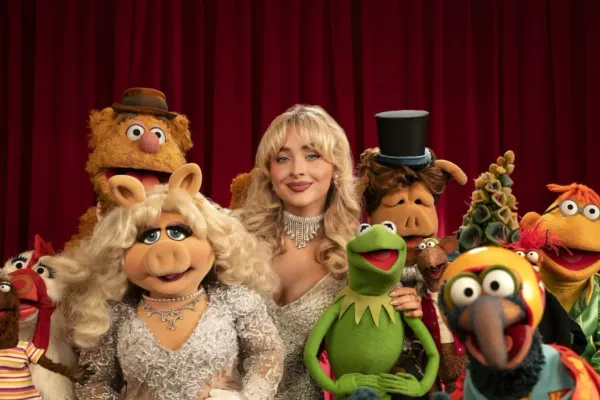The stories a sitcom can only tell in its final season
On Kramer's job, Sam Malone's toupee, and Mary Richards's date with Lou Grant

When we think about the ends of long-running sitcoms, we tend to think about the blockbuster finales of these shows. We think of Hawkeye leaving Korea, of Diane returning to Cheers, of Ted Mosby meeting the mother.
But there’s a different kind of story a sitcom can only tell toward its end, because while it will not materially change the show itself, it will rob the series of some essential bit of comedic tension or mystery. Ideally, this story pays off something that has existed in the show from the beginning but that the audience hasn’t entirely realized is something that needs to be paid off, because it’s so central to either the story of the show or one of its characters. Resolving that setup doesn’t really alter the status quo, but it does fundamentally alter our understanding of that status quo in a way that might prove detrimental across more seasons. But in a final season? All bets are off.
(I should note that this is something I primarily think about in comedies. There’s a similar phenomenon in long-running dramas that is not quite the same. I may write about it someday.)
I’ve long been obsessed with this kind of story, and I started thinking about it again because of a recent rewatch of the Seinfeld episode “The Strike.” Perhaps better known as “the Festivus episode,” “The Strike” also involves the revelation that Kramer hasn’t had a consistent job across the run of the series because he’s been on strike from working at H&H Bagels for 12 years, over the store’s refusal to raise workers’ wages. He returns to the store, but it doesn’t go well, and he eventually ends up on strike again.
On its face, this story doesn’t seem as though it will change much about the show. What does it matter that we know what Kramer was doing three years before the series began? Do we really need to know the truth behind his oddball series of odd jobs? This storyline feels of a piece with the many other kooky storylines across the show’s final two seasons (which are a step down from its creative heights).
(Sidebar: Technically, finding out Kramer’s first name is the sort of thing that would normally happen in a final season, but Seinfeld dropped that particular bit of knowledge in its sixth season. Similarly, Home Improvement revealed the full name of Wilson — Wilson W. Wilson, Jr., Ph.D. — late in its run but not actually in the final season, though viewers didn’t see Wilson’s face until the series finale’s curtain call. Tim Taylor himself finally saw Wilson’s face in the finale, however. You have no idea how long I spent googling all of this information.)
But knowing that Kramer has been on a years-long strike does subtly change something we know about his character on a level that perhaps would erode his character over the years to come if the show aired for several more seasons. Now, his long series of odd jobs feels less like a comedic conceit and more like a specific response to a problem he had in his past. It doesn’t make those odd jobs less funny, but it does recontextualize them in a way that changes him, just a little bit. And in the American sitcom, a form built around glacial change, doing something like this that is so core to the character generally gets saved for a final season.
If the end of a sitcom, then, is often about a major change to the status quo — a new job in another town, or a workplace going out of business, or the kids moving out — the final season of a sitcom is often about these tiny little ruptures in the status quo. Usually, these are ruptures between the audience and the characters, as we learn things that the characters probably either knew or could have figured out easily. But they are as quietly earth-shattering as anything else that can happen in a final season.
Some shows build their entire final seasons around such tiny revelations. The last run of Cheers, for instance, brings back so many recurring characters from across the show’s run for one last lap, while also offering some sly answers to long-running questions. We even learn that Sam Malone is going bald, and we see him join a group for sexual compulsives. These are two things that directly undermine much of what we know about Sam, but because we never see season 12, we don’t really have to think about them.
Some of these revelations involve letting fans get a glimpse — usually just a glimpse — at something they think they might want, as when Mary and Lou go on a date in the penultimate episode of The Mary Tyler Moore Show. The documentary crew on The Office revealed itself. And even more arrive in long-running shows that want viewers to look at just how much subtle character development has taken place across the series’ run, as when Mike and Archie got locked in a basement together on All in the Family (in what turned out to not be the show’s final season but was assumed to be by most working on it) and when Frank Barone and his boys talked about Frank’s abusive childhood on Everybody Loves Raymond. All of these revelations might be bundled together under a loose heading of “the characters you loved, as you’ve loved them.”
But even more revelations are just silly little payoffs to things that have run throughout the series. There’s a whole episode of Friends from its eighth season (another thought to be the last season until everybody involved agreed to a ninth and later a 10th) about Chandler and Joey trying to get into Monica’s secret locked closet — a piece of set decoration that you’d only notice in the main apartment set if you really cared about Friends. How I Met Your Mother paid off the slap bet. New Girl revealed the fate of Furguson.
I love these little ruptures. They’re an acknowledgement of the passage of time and just how much we, as viewers, have bought into this world and these characters, without being incredibly obvious about it. They are the kinds of stories that can only exist in a final season (and/or a season everybody thinks is the final one). And once you start looking for them in a comedy’s final season, they’re everywhere. (The final season of 30 Rock is practically constructed of them.)
The relationships we have with TV shows are just that — relationships. We might eventually grow tired of that show, or we might be ready to see what else is on. But as the end nears, the best shows often find a way to reveal they have a trick up their sleeve we really should have guessed was there but never knew to ask to see. These tiny moments are their own ultimate endings, as significant, in their own way, as a big, showy conclusion, because, after all, few endings are as big and showy as we might like.
So what are your favorite tiny ruptures in a comedy’s final season? Let me know in comments.
Public service announcement: Don’t forget that a paid edition of Episodes is coming very soon! Read details here.
What I’ve been up to: I published a bunch of stuff last week in the buildup to Thanksgiving, and you should read all of it, but you should especially read my latest adventures with Vox’s 5.25-year-old critic-at-small, Eliza! We talked about the Frozen franchise.
Emily: Frozen came out before you were born, but do you remember going to see Frozen II in the theater?
Eliza: Yes. And I remember the part when [my sister] was asleep when the Earth Giants came. So she missed it.
Emily: Did you tell her about it later?
Eliza: No. But she saw it, because we watched the movie last night. And guess what, Emily? We watched the whole movie before dinner!
Emily: Wow! I never get to do that! So are there things in these movies that you maybe didn’t like as much before that you like a lot more now? Or are there things you did like before that —
Eliza: Guess what I dream about every night?!
Emily: What?
Eliza: Octonauts! My favorite show! They go under the water!
Read me: I’ve been rewatching Star Trek: Deep Space Nine with my TV watching pals, and I’ve been really enjoying it, even though we literally just started season two. (Season one is messy but honestly might be a little underrated!) In the process of watching, I’ve been really enjoying writing on the show from around the internet, particularly this piece by Angelica Jade Bastien on the show’s place in Black TV history:
The pilot, “The Emissary,” artfully lays the groundwork for their relationship, introducing Sisko as a widower reluctant to take the position as commander aboard the space station and shepherd the Bajorans, a highly religious people recently freed from a decades-long occupation by the Cardassians, into joining the Federation. His wife, Jennifer (Felecia M. Bell), died during the Battle of Wolf 359 which was headed by a Borg-assimilated Captain Picard (Patrick Stewart), making their first and only meeting in the series an icy one. Both Sisko and Jake are grieving this loss, clinging to each other for stability and familiarity as they enter a strange new environment. When watching “The Emissary” recently, the chemistry between Brooks and Lofton was immediately apparent. They moved and touched one another with a familiarity that struck me as having a deep, emotional history. They felt like a family with an immediacy I’ve seen few actors able to match on television.
When Cirroc Lofton was first cast as Jake, his parents had recently divorced and Avery Brooks became a father figure to him. At a 2013 panel on Deep Space Nine, a black man in the audience spoke eloquently about how watching this relationship, and Brooks’s role in particular, was deeply impactful for him. Lofton later said, “Avery was that same role model for me in real life.” For his part, Brooks has long discussed how the Sisko and Jake dynamic was big part of why he wanted to join Star Trek. “The relationship between Sisko and his son was … very important,” Brooks said in 2012. “That was something else you still don’t often see on air, at least as it concerns black and brown men and their sons. We got to play complicated, emotional and intricate scenes, and we got to have tender and fun moments. It wasn’t a pat relationship or an easy one, and it was very realistic.”
Watch me: I’m sorry, for the next several weeks, I’m just going to be watching shit like this.
And another thing: My extremely good friend Cassie LaBelle read Ready Player Two, and her travails made for an incredibly entertaining Twitter thread. Check it out.
You asked. You begged. You offered to bake cakes. You Venmo'd me $14.99.
Who am I to say no to that?
Welcome to
CASSIE
READS
READY PLAYER TWO
(A THREAD) pic.twitter.com/XnOvAhUHW0November 25, 2020
This week’s reading music: “the end” by MisterWives
Episodes is published once per week and is about whatever I feel like that particular week. Suggest topics for future installments via email or on Twitter. Read more of my work at Vox.




